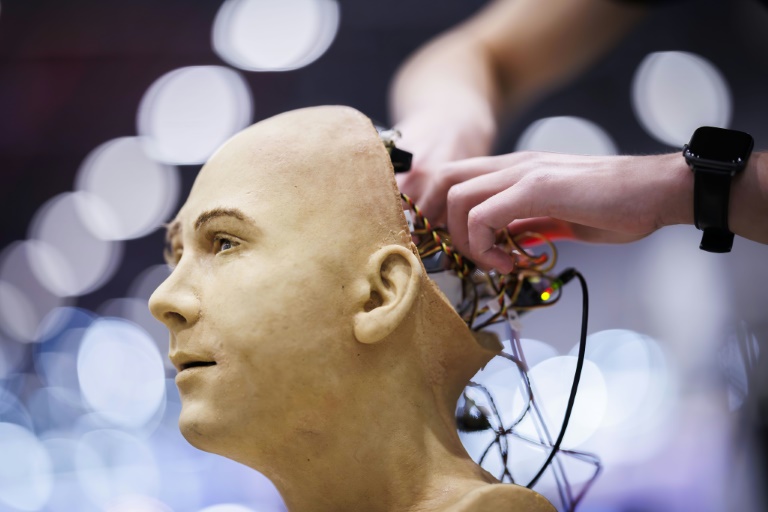Science
Scientists Discover Seven Senses May Enhance Robotics and AI

A team of scientists at Skoltech has proposed a groundbreaking theory suggesting that humans may possess seven senses, which could significantly aid the development of robotics and artificial intelligence (AI). This claim arises from a new mathematical model of memory that enhances understanding of how information is encoded and stored in both humans and machines.
The researchers found that memory functions optimally in a seven-dimensional conceptual space. By characterizing memory in this way, it appears that both humans and AI could improve learning and recall through broader sensory inputs. This insight may lead to advancements in robotic systems and deepen our understanding of human cognition.
To explore this concept, the team focused on “engrams,” the fundamental units of memory. An engram is described as a sparse collection of neurons in various brain regions that activate together, representing a specific concept through a set of features. For instance, the concept of a banana encompasses its appearance, smell, taste, and other sensory attributes, effectively creating a five-dimensional representation within the brain’s memory space.
According to lead researcher Nikolay Brilliantov, the study indicates that when concepts are defined by seven features rather than fewer or more, the capacity for retaining distinct objects in memory reaches its peak. Brilliantov stated, “We have mathematically demonstrated that the engrams in the conceptual space tend to evolve toward a steady state… the number of distinct engrams stored in memory in the steady state is greatest for a concept space of seven dimensions.”
The implications of this discovery are profound. By maximizing the capacity of the conceptual space, individuals can develop a richer understanding of the world. The study suggests that the number seven is not merely a coincidence. Rather, it remains consistent across various models, indicating a robust characteristic of memory engrams.
This research sheds light on the enigmatic nature of human memory and its ties to consciousness. Advancing theoretical models of memory could lead to new insights into human cognition and pave the way for creating human-like memory systems in AI agents.
The findings were published in Scientific Reports in March 2024, under the title “The critical dimension of memory engrams and an optimal number of senses.” This study not only challenges existing notions about human cognition but also opens new avenues for enhancing technology that mimics human-like responses and learning capabilities.
-

 Science3 months ago
Science3 months agoToyoake City Proposes Daily Two-Hour Smartphone Use Limit
-

 Health4 months ago
Health4 months agoB.C. Review Reveals Urgent Need for Rare-Disease Drug Reforms
-

 Top Stories4 months ago
Top Stories4 months agoPedestrian Fatally Injured in Esquimalt Collision on August 14
-

 Technology3 months ago
Technology3 months agoDark Adventure Game “Bye Sweet Carole” Set for October Release
-

 World3 months ago
World3 months agoJimmy Lai’s Defense Challenges Charges Under National Security Law
-

 Lifestyle4 months ago
Lifestyle4 months agoVictoria’s Pop-Up Shop Shines Light on B.C.’s Wolf Cull
-

 Technology3 months ago
Technology3 months agoKonami Revives Iconic Metal Gear Solid Delta Ahead of Release
-

 Technology3 months ago
Technology3 months agoApple Expands Self-Service Repair Program to Canada
-

 Technology3 months ago
Technology3 months agoSnapmaker U1 Color 3D Printer Redefines Speed and Sustainability
-

 Technology3 months ago
Technology3 months agoAION Folding Knife: Redefining EDC Design with Premium Materials
-

 Technology4 months ago
Technology4 months agoSolve Today’s Wordle Challenge: Hints and Answer for August 19
-

 Business4 months ago
Business4 months agoGordon Murray Automotive Unveils S1 LM and Le Mans GTR at Monterey









